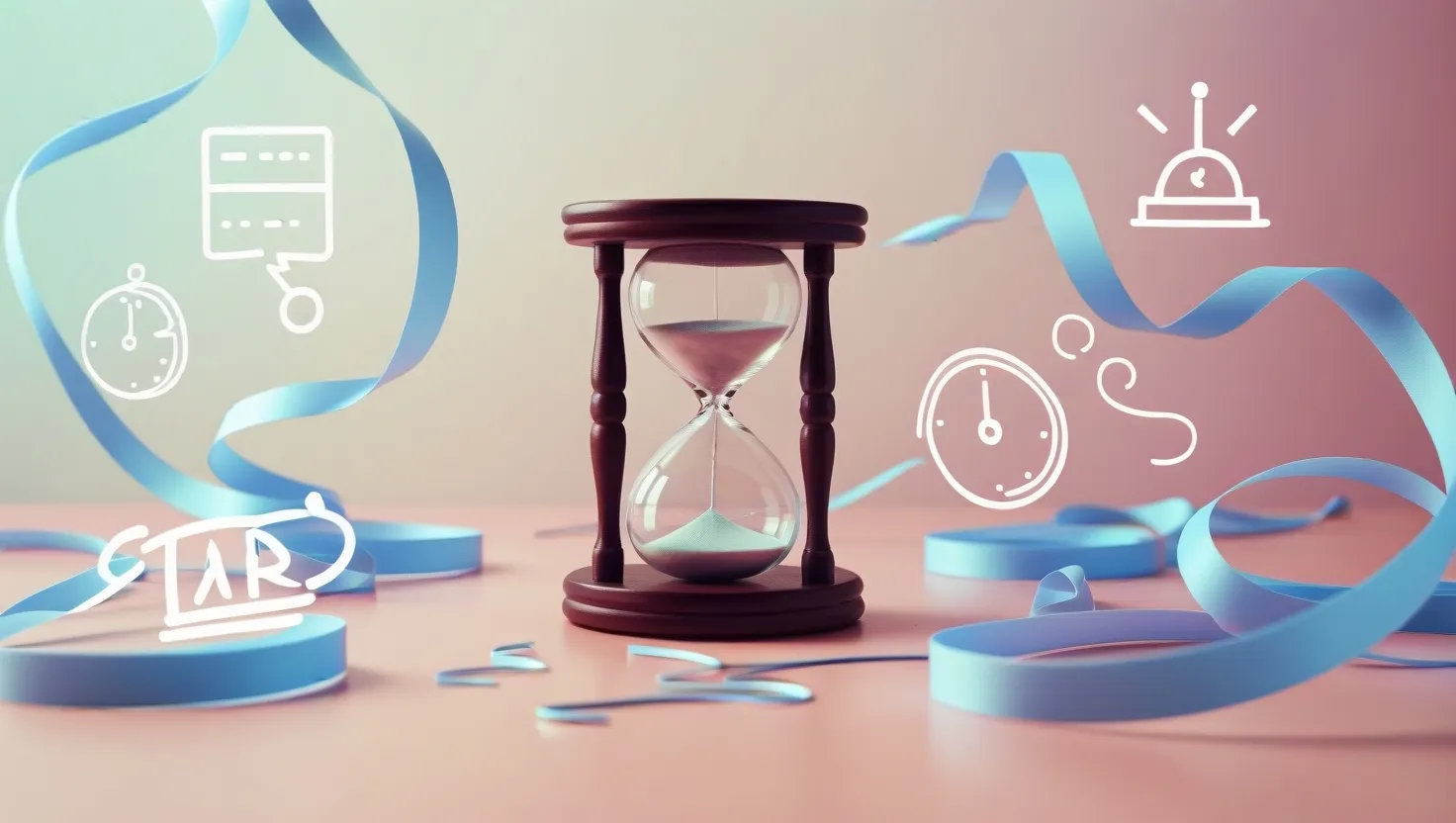Buffer Time: Your Secret Weapon for Stress-Free Productivity
Ever feel like you’re constantly racing against the clock, juggling tasks, and barely keeping your head above water? We’ve all been there. But what if I told you there’s a simple trick that could revolutionize your day-to-day life? Enter buffer time - your new best friend in the battle against stress and overwhelm.
So, what exactly is buffer time? Think of it as your personal cushion, a little pocket of breathing space you build into your schedule. It’s those extra minutes you set aside between tasks or at the end of projects to handle whatever life throws your way. And trust me, life always has a curveball or two up its sleeve!
Now, you might be thinking, “I’m already stretched thin. How can I possibly find extra time?” But here’s the kicker - buffer time isn’t about adding more to your plate. It’s about giving yourself room to breathe, recharge, and tackle unexpected challenges without losing your cool.
Imagine you’re working on a big project, and suddenly your computer decides to throw a tantrum. Without buffer time, you’d be in full-on panic mode, watching your deadline zoom by. But with a little buffer built in, you’ve got the wiggle room to sort out the tech gremlins and still hit your target. Pretty sweet, right?
But it’s not just about work stuff. Buffer time can be a game-changer in your personal life too. Picture this: you’ve got a day packed with back-to-back appointments. Without buffer time, you’re constantly checking your watch, rushing from one place to the next, probably forgetting half of what you need. But throw in some buffer time between those appointments, and suddenly you’ve got a moment to catch your breath, gather your thoughts, maybe even grab a coffee. It’s like hitting the reset button on your brain!
So, how do you actually make this buffer time magic happen? Enter time blocking - your new scheduling BFF. It’s simple really. Instead of cramming your calendar full, leave some gaps. Maybe it’s 15 minutes between meetings, or an hour at the end of your workday. The key is to treat this time like it’s sacred. It’s not bonus work time or a chance to squeeze in extra tasks. It’s your time to decompress, prepare, or handle the unexpected.
Let me share a little secret - I used to be that person who scheduled every minute of my day. I thought I was being super productive, but in reality, I was stressed out and constantly running late. Then I discovered buffer time. Now, I block out 30 minutes before and after each meeting. Sometimes I use it to review notes or prep for the next task. Other times, I take a quick walk or do some deep breathing exercises. It’s made a world of difference in how I feel and perform throughout the day.
But here’s the thing - buffer time isn’t a one-size-fits-all solution. You’ve got to play around with it and find what works for you. Maybe you need more buffer time on Mondays when things tend to be hectic. Or perhaps you find that 10-minute breaks work better than longer ones. The key is to stay flexible and adjust as you go.
And don’t forget about technology! There are tons of scheduling apps out there that can help you build in buffer time automatically. Some even let you customize the duration based on the type of task or meeting. It’s like having a personal assistant managing your time for you!
Now, let’s talk about the elephant in the room - what if you feel guilty about taking this time for yourself? Here’s the truth: buffer time isn’t selfish, it’s smart. It’s about taking care of yourself so you can be at your best for others. Think of it as preventative maintenance for your mental health. Just like you wouldn’t drive your car non-stop without ever changing the oil, you shouldn’t expect your brain to run at full speed without regular breaks.
Buffer time is also a great opportunity for some mini self-care moments. Use those 15 minutes between tasks to stretch, grab a healthy snack, or even do a quick meditation. Your body and mind will thank you for it!
One of the coolest things about buffer time is how it can boost your creativity. When you’re not constantly rushing from one thing to the next, your brain has a chance to wander and make new connections. Who knows, you might just stumble upon your next big idea during those buffer moments!
But here’s a word of caution - don’t let your buffer time become procrastination time. It’s not an excuse to scroll through social media or put off important tasks. Use it intentionally, whether that’s for preparation, reflection, or simply taking a breather.
Speaking of reflection, buffer time is perfect for a quick review session. Just finished a big project? Use your buffer time to jot down what went well and what you could improve next time. It’s like giving yourself a mini performance review, and it can really help you grow both personally and professionally.
Now, you might be wondering how to explain this whole buffer time thing to your colleagues or clients. Communication is key here. Let them know about your new scheduling strategy and how it helps you be more productive and focused. Most people will respect your boundaries once they understand the benefits.
Remember, implementing buffer time is a journey, not a destination. It might feel a bit weird at first, especially if you’re used to running at full speed all the time. But stick with it, and you’ll start to notice the difference. You’ll feel more in control, less stressed, and probably more productive too.
So, are you ready to give buffer time a shot? Start small - maybe add a 10-minute buffer to your mornings this week. See how it feels. Then gradually increase it and spread it throughout your day. Before you know it, you’ll be wondering how you ever managed without it!
Buffer time isn’t just a productivity hack - it’s a lifestyle change. It’s about valuing your time, your mental health, and your overall well-being. It’s about giving yourself permission to breathe, to think, to be human in a world that often expects us to be machines.
So go ahead, give yourself the gift of buffer time. Your future, less-stressed self will thank you for it. And who knows? You might just find that in slowing down, you actually speed up your path to success. Now that’s what I call a win-win!






